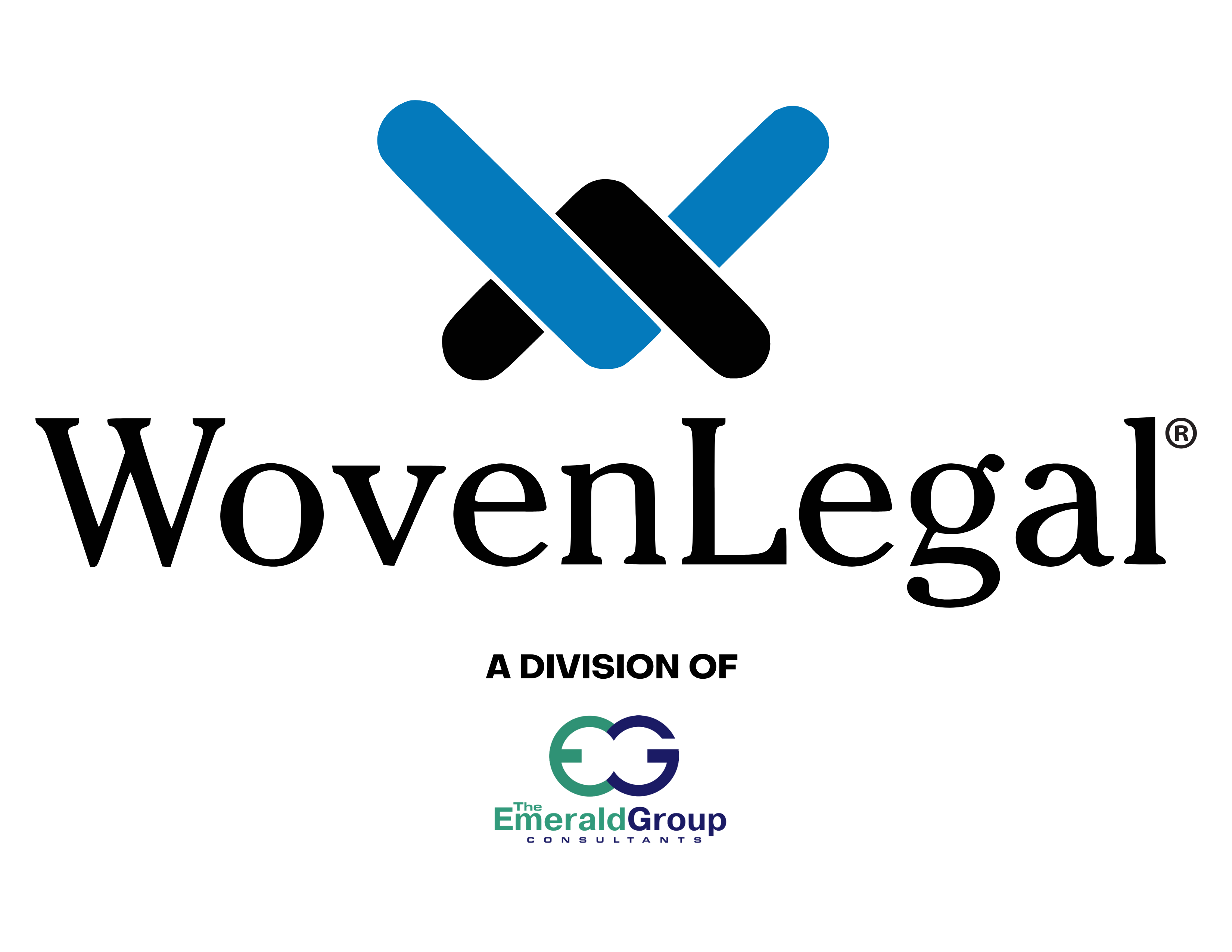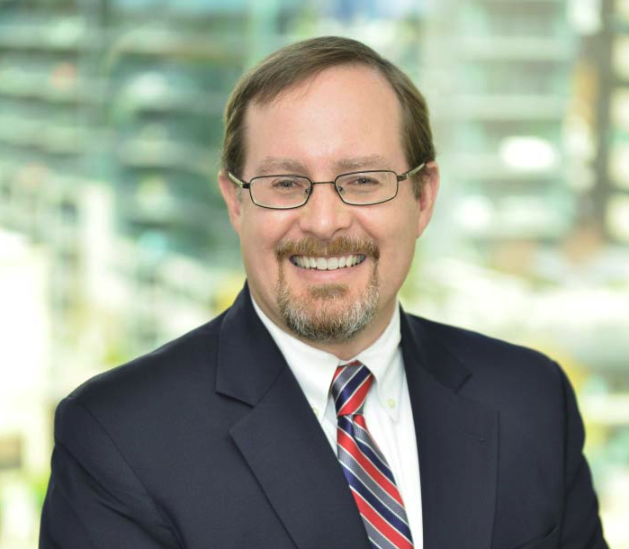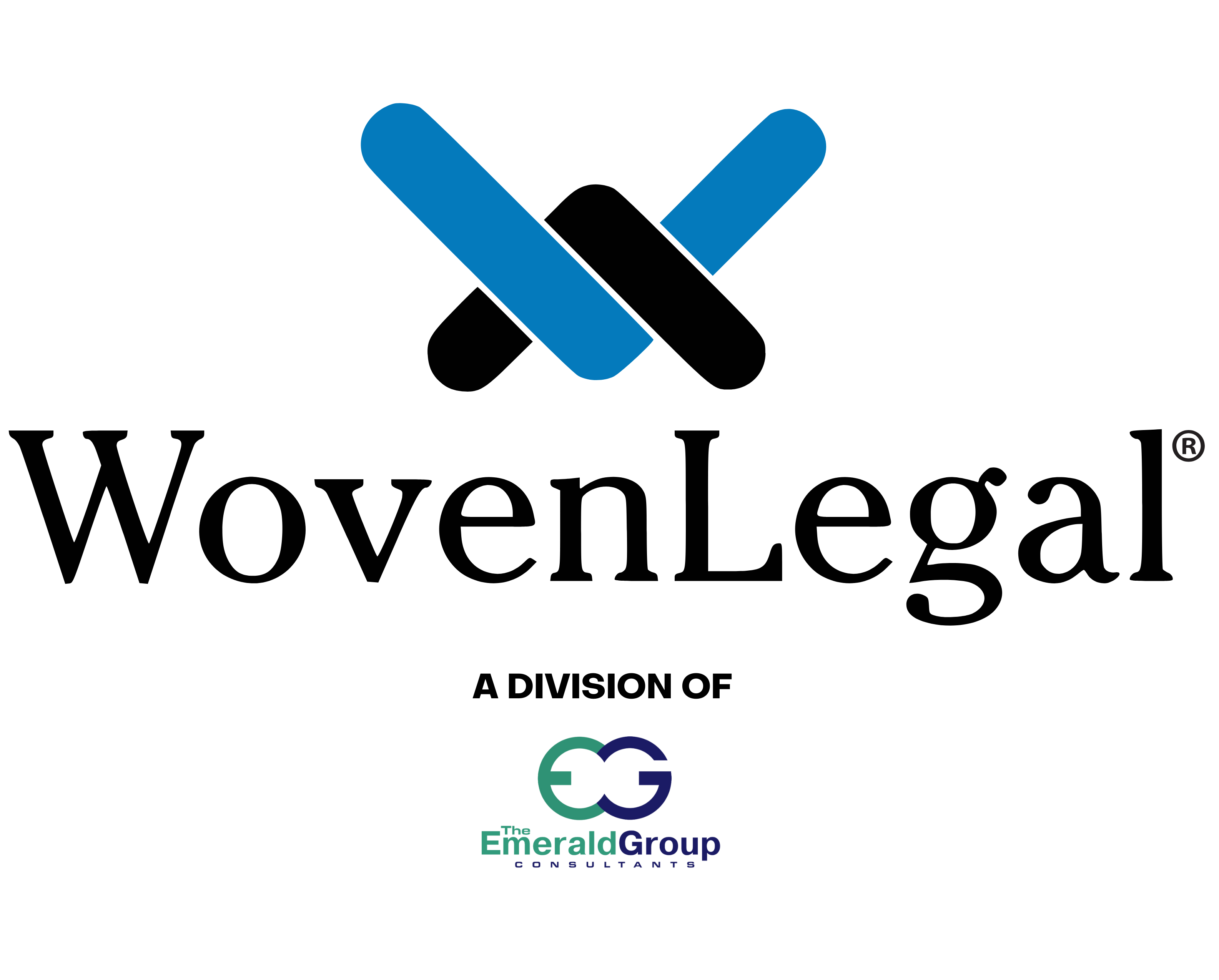Woven Legal’s Meg Garavaglia recently had the opportunity to interview Keith Hasson of Hasson Law Group LLP. Keith shared his insights on what it takes to hang your own shingle, grow a solid team with longevity, develop a positive culture, and other tips for leading a successful practice.
MG: I know that you are a Duke alumnus, so I think it’s best to begin with: How are you doing since Coach K’s announcement? Are you practicing “self-care, Keith?”
KH: It’s very sad. (Shaking his head) I had a bet with my pastor and three other church members on whose team would go the furthest during the Final Four. It was remarkable: the pastor (chose) Villanova, another guy had UNC, the fourth guy had Kentucky (which probably should have been in the Final Four but wasn’t anywhere near that), and I had Duke. We actually made this bet a year ago before the season had even started, so now, not only did my Blue Devils lose, but I have to buy the Carolina guy dinner.
MG: May I suggest Drive-Thru?
MG: When we first met and did business together, you were a Partner at Federal Hasson for several years before leaving and opening your own firm. Knowing what you know now and in retrospect, would you still leave to open your own firm?
KH: As you know, I had a Partner at Federal Hasson, Keegan Federal, who had been practicing a long time; he’s a generation older than I am. Keegan and I got along really well. I learned a tremendous amount from him. As I got a little older and developed my own book of business, our practices diverged. I was doing more and more business litigation. He was doing more and more Catastrophic Personal Injury. He has a daughter who suffered a traumatic brain injury, and he was excellent at helping people who had suffered brain and spinal cord injuries. So, there was a dichotomy between our practices. After some time, our practices became separate – and I had been thinking of starting my own practice – so it made sense for me to have a firm of my own. It’s been a little over ten years now, and we’ve been very successful – knock on wood – and, yes, I would do it again…IF I could go back and do it again as a 40-year-old. I am about to turn 50. I’m not sure that I would want to start over at 50.
MG: That’s interesting because I see a lot of attorneys who, around that 50-year mark, are thinking about going out on their own. Why the hesitation at 50? What would you say would be the biggest challenge?
KH: Most (seasoned) attorneys thinking about making the jump are probably in a similar situation to what I faced, which was that I had built up a book of business and was able to hit the ground running from day one. Of course, the biggest fear is always, “what happens if all these clients go away?” but that’s not the biggest challenge most will face in reality. The biggest challenge to going out on your own is that when you’re working for a firm of any real size, they have the technology, systems, and support staff in place. If you have a computer problem, you pick up the phone and call the firm’s IT guy. But when you start out on your own, there is no IT guy…unless you go find him and make sure he has the right qualifications and so on. That’s the biggest challenge for most folks starting out – how to manage their time effectively to practice law, solve our clients’ problems, and do all the other tasks that go into running a business. When you open your own firm, you take on three full-time jobs: finding more business, working the business you brought in, and then running the business. Managing all of that…it takes a minute to get that down pat.
MG: When you’ve looked to grow your firm’s staff, what qualities and attributes are most important to maintaining your culture or to even, early on, developing your culture? I believe you have retained much of the same staff you brought in during your first year.
KH: Yes, I have a lawyer who has been with me for most of the last ten years. He’s a really smart guy I met at my old firm. He had tried to set up his own practice and found that he didn’t like having to do all the other jobs I just mentioned, and he just wanted to get back to being a lawyer. We work really well together – he’s a great researcher and writer – a great guy to have in my firm. Then, I have my primary paralegal/administrative assistant – again, someone I knew at my old firm who’s been with me for about ten years. Then, we have a younger associate, about four years out of Emory Law School, who’s a very hard worker and likes to have plenty to do. She actually comes to me asking for more work – which is an attitude I love to see. I want people who roll up their sleeves, do what needs to get done, and embrace the team approach to solving our clients’ problems.
MG: How would you describe your work culture?
KH: We take a team approach to solving client problems. We usually have at least two attorneys working on any individual client matter. Working collegially has been really effective for our team. We meet regularly to discuss what’s going on with the cases and what needs to get done next. I keep my door open and check in with my team daily. And my staff knows I don’t tolerate a whole bunch of drama. While I will listen to an issue of that sort, they understand I want to resolve it so it doesn’t distract us from our mission to serve our clients’ needs. I want to continue growing a team that stays focused on “How do we serve our clients better?”
MG: I have known you are a first-degree black belt for many years. Do you think your martial arts training lends itself to helping you be the best attorney you can be?
KH: I took two things from martial arts training that I bring to the practice of law. The first is that martial arts training is not something you can master overnight. Most people can’t throw an effective punch until they’ve worked at it for a long time. That’s very similar to coming into the courtroom. You have to be ready to outwork your opponent, which can take a lot of hard work over a long time. It’s very meticulous work where you will not see immediate results. And, I think that’s true with the practice of law if you want to be good at it. Also, this work is like martial arts in that you have to continue practicing if you’re going to perform at a very high level.
Another thing they taught us in martial arts that applies to this profession is that it’s better to eliminate a weakness than to improve upon a strength. Everyone has strengths and weaknesses. But your enemy in martial arts will attack you where you are weakest. And that’s true for lawyers. If you aren’t working to eliminate your weaknesses…or if you aren’t self-aware enough to even know what those weaknesses are, you’re in trouble. That’s consistent with being a lawyer, too. Always look to eliminate your weaknesses.
MG: Do you still practice martial arts?
KH: I have a son who is 14 and has expressed some interest in it. And I’ve done a little with him.
MG: What part of your attorney career has proven to be the most personally rewarding?
KH: The most rewarding thing is to have a client who really needs help, who I can help and to attack their problem, find a solution, implement the solution and deliver a good result. I find that personally rewarding. It’s nice to collect a fee for doing that, but it is providing the good results that I find most rewarding. Now, of course, I have had some clients that either won’t listen to my advice or, for whatever reason, the results that we get aren’t as great as I would’ve liked. It’s in those situations and at those times when I am most frustrated.
MG: Did you have any mentors throughout your career, and, if so, how was their advice and influence most valuable?
KH: In Durham, North Carolina, when I first started practicing law, the senior partner in the firm I was in was Bill Faison. He taught me a lot about preparing cases from beginning to end and managing the workflow required to prosecute those cases. He was excellent at cutting through the nonsense and developing a strategy focused on the heart of the matter. When I worked as a criminal prosecutor, I had the chance to try many cases and see other lawyers try cases, which was very helpful to me in my work as a litigator. I got to see some of the very best criminal prosecutors and the best criminal defense attorneys put on excellent dog and pony shows for juries and judges. That was very, very valuable to me now as a litigator. And, we civil litigators don’t get to try cases as much as a criminal attorney. So, to have had the opportunity to see that and hone those skills was valuable. When I was a Prosecutor, I was able to try cases probably once a month. That was a great opportunity and experience.
I also consider my former partner, Keegan, a mentor, and he taught me what kinds of questions to ask. He had been in practice for many years, was a Superior Court judge, and had been a litigator for many years. And while he may not have always known the answer (to a client’s problem), he knew what questions, the right questions to ask. And from there, we could figure out what the law is, and we’re already halfway towards delivering a good result for the client.
MG: What is the best investment you’ve made into your firm or career?
KH: I don’t know that this is the typical type of answer you’d expect, but this has to do with that fear I mentioned that exists when you go out on your own. When I first decided to open my firm, I needed to find office space and came to the building where I am now. I was here to see a little podunk space in the back corner of the building. But, I actually got off on the wrong floor and saw these beautiful glass doors in front of an empty space. When I talked to the building manager about it, this new open space was more expensive than the smaller space I’d been coming to see. I fretted for a long time because it was more than I needed…well, I ended up going with the bigger space, and I’m glad I did because it gave me room to expand – which we have.
MG: I’ve always been impressed with your decisiveness and ability to communicate what you expect from vendors – and, I imagine, from your staff. It’s also been my experience when doing business with you that while you are clear about what you need, I’ve never seen you threaten or blow up. How did you learn to communicate your expectations and maintain high standards while still retaining your firm’s positive team environment?
KH: One aspect is having the right people working for you – the right colleagues and support staff who have the right attitude…that goes a long way. Having hard-working people, who want to solve the client’s problems, and who find it rewarding to achieve success- solves many problems before they even begin.
Years ago, lawyers were technology averse, and they didn’t want to necessarily learn. There was a fear that if they had a good “secretary,” and you trained her well, you prayed she wouldn’t leave! So, attorneys relied heavily on support staff for administrative-type duties.
These days, lawyers are much more technologically savvy and can do a great deal of their admin work themselves. Now, where we can delegate that work to a paralegal or to an admin professional, which buys us back time…because time is our most valuable commodity, allows us TIME to go and do things only we can do. I think the hesitancy you may be seeing is that same old fear of, “If I push them too hard, they’ll just quit on me, and then where will I be? How long will it take to not only recruit and hire someone but train them to do the things my current person is doing.” Attorneys are generally risk-averse people; we already have so much on our plates. Who wants to take on all that extra work?? So, having the right people in a firm helps optimize our time.
MG: Do you think you’re a better attorney or a better businessman?
KH: I am probably a better attorney. I think I have a lot of business experience compared with other attorneys because of my practice area (business litigation). For a long time, I’ve been directly involved with business people, talking about businesses and their issues…seeing what works and what doesn’t work… which I believe adds to my skills as a lawyer. But, sometimes they make decisions I don’t understand and that I think are wrong and won’t work at all. And…they show me! (Laughing) And that causes me to believe I’m a better lawyer than I am a businessman.
MG: Is there an adage that springs to mind that’s important to you?
KH: One of the things I’ve often said to my sons and the lawyers I work with is that it’s really strange how people who work hard or even outwork others tend to get lucky more often. Good luck seems to find its way to people who work hard.




Comments are closed